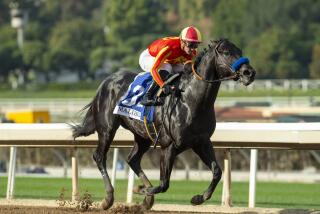Review: 2016 Indian Springfield is a flexible flyer
Polaris Industries-owned Indian Motorcycle has taken a bite out of the traditional big bike market, and taken some sales away from market leader Harley-Davidson, by fielding good-looking retro-style motorcycles built to include modern technology.
The Springfield is the latest in a line that began with the Chief, Chieftain and Chief Classic baggers, grew bigger to include the Roadmaster touring machine, and then grew smaller to include the Scout and Scout Sixty.
I’ve logged some saddle time on most of these, and have liked them quite a bit. The Scouts are sporty and light. The Chiefs and Chieftains are heavier and heartier. The Roadmaster is huge, but rides like a smaller bike and is unusually easy to operate, considering its 897-pound dry weight.
The Springfield is meant to land somewhere in the middle of the pack — burlier than the Scouts, but nimbler than the tourer.
It’s also a bit more flexible. The Springfield’s main claim to fame is that unlike the Scout or the Chief Classic or Vintage, it has a windshield and hard-sided saddle bags, but unlike the Chieftain and the Roadmaster, the windshield and saddle bags are removable, without tools. You can roar the raw bike around town, or load it up with gear and hit the highway.
Powered by Indian’s Thunderstroke 111 engine, the same 1811cc power plant that drives the Roadmaster, Chieftain and Chief bikes, the Springfield pumps a claimed 119 pound-feet of torque.
In the low gears, the big engine pulls smoothly. In the high gears, it makes the Springfield a real road runner. At 80 miles per hour, it’s barely turning 3,000 rpms.
The clutch pull is soft, and the gearbox operates with a satisfying clunk.
Among the modern amenities are many found on other Indians: Cruise control, tire-pressure monitoring, ABS, keyless ignition and remote saddle bag locking are standard.
Like the other Indians, the Springfield features the gorgeous, sculpted fender skirts that are a stylistic nod to the company’s long heritage.
It also includes the traditional heavy metal headlamp and the chrome Indian head on the front fender.
It also sits Indian-style, and low — at a 26-inch seat height, riding on 16-inch wheels — which makes the bike’s 818-pound dry weight a little less unwieldy.
The brakes also help reduce the heaviness significantly. Twin 300mm rotors up front, and a single 300mm rotor in the rear, slow and stop the Springfield gently, even when aggressive braking is required.
The saddlebags easily held enough gear for two people on an overnight getaway — though they are not big enough to hold a full-face helmet.
But on a long-distance ride, the Springfield showed me why it’s classified by Indian as a “bagger” and not a “tourer.” After two hours in the saddle, I was experiencing significant fatigue in the posterior department. My pillion partner, though highly approving of the optional passenger back rest, reported similar distress.
Relatively low gas mileage partly solves that problem. The 5.5-gallon tank, at under 40 miles per gallon, allowed a range of about 200 miles. So, on a road trip, I was stopping every two hours for fuel anyway.
I also struggled with the windshield, which for a person my height (6 feet, on my driver’s license, a little shorter in actuality) was too tall to see over but too short to create a really windless rider pocket. I found myself sitting tall or slumping down to avoid having the top of the windshield fold a horizontal crease in the view.
Taller and shorter windscreens are available as aftermarket options, for $599. Other seats are available, too, but they seem to offer choices aimed at styling, not comfort.
Indian has priced the Springfield in the high middle of its line, at $20,999. That’s well under the Roadmaster’s $27,999, just under the Chieftain’s $22,999, and somewhat above the Chiefs, which range from $17,499 to $19,999.
Twitter: @misterfleming







